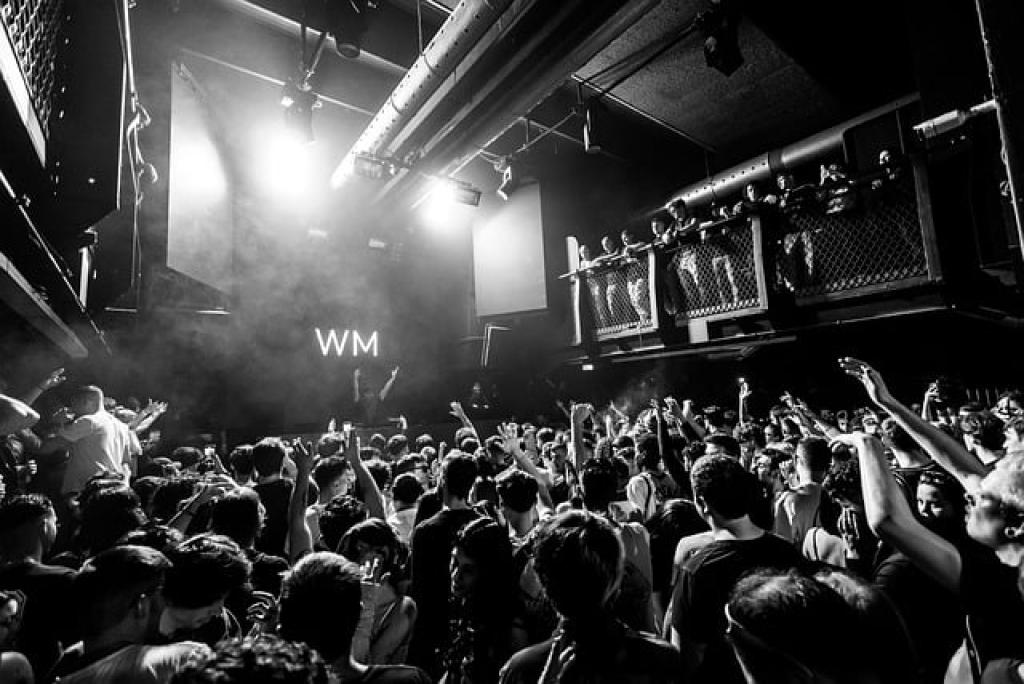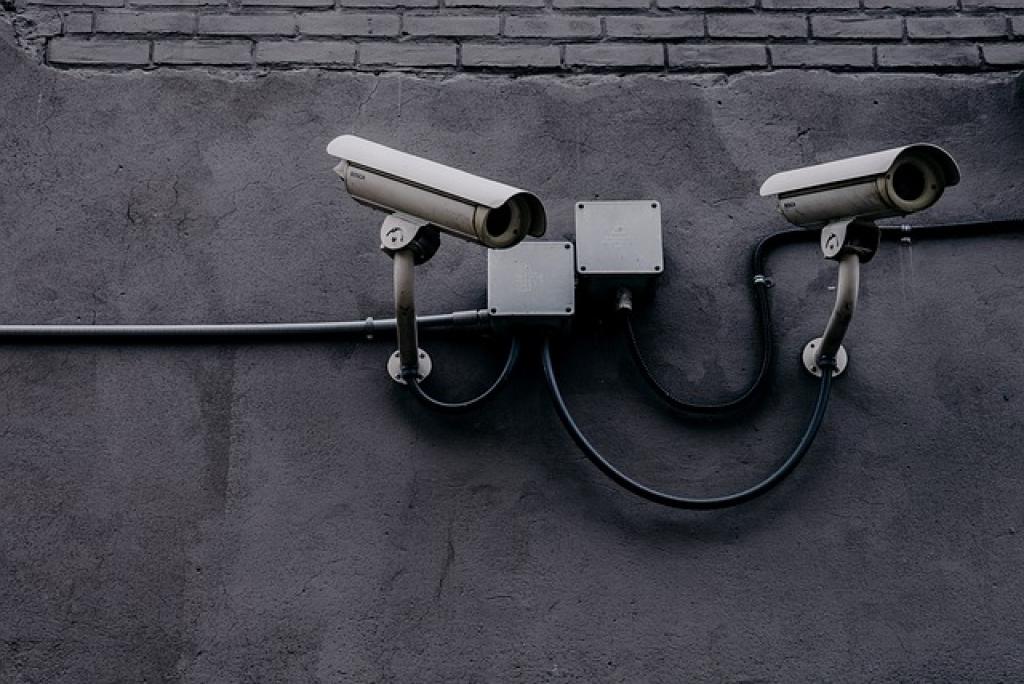
Enhancing Event Safety: Comprehensive Guide to Concert Security Guards in the San Francisco Bay Area by Jeff Gutierrez Event Security
Concerts in the San Francisco Bay Area are electrifying experiences, filled with vibrant energy and unforgettable performances. Yet, behind the scenes of every successful event is a dedicated team ensuring everything runs smoothly and safely. With the rising importance of security at large gatherings, concert security guards play a pivotal role.
Jeff Gutierrez Event Security brings a wealth of expertise to this crucial aspect of event management. Their team knows that a secure environment amplifies the enjoyment for everyone, from iconic venues to intimate local shows. Understanding local regulations, crowd dynamics, and swift emergency response are just a few elements concert security addresses.
In this guide, you’ll discover how seasoned professionals approach the unique challenges of concert security in this bustling region. So, whether you’re an event organizer or a curious concert-goer, gain insights into the key components that make up a secure and successful event.
Key Considerations for Hiring Concert Security Guards
When planning a concert, one of the critical steps is hiring the right security team. But what should you look for in concert security guards to ensure the safety of your event? There are several key considerations to keep in mind.
First, prioritize experience and training. Look for guards who are not only experienced in managing large crowds but are also trained in emergency response and conflict resolution. Their ability to handle situations calmly and efficiently is essential.
Another vital factor is knowledge of the local area and regulations. Security personnel who understand the San Francisco Bay Area’s specific requirements can navigate regulations more effectively, ensuring your event complies with local laws.
Communication skills are also crucial. Guards should be able to interact courteously with attendees while maintaining authority. They should also seamlessly collaborate with event staff and local authorities to address issues as they arise.
Lastly, consider the reputation and track record of the security provider. Agencies like Jeff Gutierrez Event Security, known for their reliability and professionalism, ensure peace of mind for event organizers and attendees alike. Careful consideration of these factors will enhance the overall security and success of your concert.
Specialized Training Requirements for Event Security Personnel
Concerts present unique challenges, requiring security personnel to possess specialized skills. Understanding these training requirements is crucial for selecting the right team for your event.
Crowd Management Skills
Effectively managing large and often energetic crowds is a cornerstone of concert security. Guards must be trained to maintain order while allowing concert-goers to enjoy the experience. This involves mastering crowd control techniques and knowing how to anticipate potential issues before they escalate.
Beyond basic security training, guards should understand emergency procedures specific to event settings. This includes evacuation protocols and first-aid techniques to ensure they can swiftly react to medical emergencies or other unforeseen incidents.
Conflict resolution remains a top priority. Concert environments can occasionally lead to disputes, so security personnel must be adept at diffusing tensions calmly and efficiently.
Training also covers the use of communication technology. Guards must be proficient in employing radios and other communication devices to coordinate with teams, ensuring rapid response and information sharing.
By prioritizing these specialized training aspects, security professionals are well-equipped to handle the dynamic nature of concerts, providing a safe atmosphere for all attendees.
Ensuring Crowd Control and Emergency Response Preparedness
Effective crowd control and emergency response are integral to concert safety. The ability to manage large groups smoothly and ensure rapid responses to incidents sets the stage for a successful event.
A well-thought-out crowd management plan is essential. This involves strategic placement of security personnel throughout the venue to monitor crowd flow and quickly address any emerging issues. Clear signage and barriers can also guide attendees, preventing bottlenecks in high-traffic areas.
Training in emergency response procedures ensures that security teams are ready for any situation. From coordinating evacuations to managing minor medical incidents, preparedness is key. Security personnel should routinely engage in drills that simulate various scenarios, ensuring they can act swiftly and effectively.
Communication is another critical element. Guards must maintain clear channels with event organizers and emergency services to relay information promptly. This coordination aids in providing timely assistance and ensuring that help arrives when needed.
By prioritizing crowd control and emergency readiness, event security teams can create a safe environment where concert-goers can focus on enjoying the show without concern.
Implementing Technology for Enhanced Event Security
Incorporating technology into event security strategies is a game-changer, offering new levels of safety and efficiency. With the right tech tools, security teams can monitor, respond to, and resolve issues faster than ever before.
One of the key components is the use of surveillance cameras. These devices provide real-time monitoring capabilities, allowing security to keep a close eye on crowd dynamics and quickly spot potential disturbances. Advanced systems equipped with motion detection and facial recognition enhance this capability.
Metal detectors and scanning technology at entry points also play a crucial role. These tools help prevent prohibited items from entering the venue, ensuring a secure environment from the outset.
Moreover, communication technologies enable seamless coordination among security personnel. Mobile apps and integrated systems allow teams to relay critical information quickly and efficiently, facilitating timely interventions.
Drones are increasingly becoming part of the security toolkit. These can provide aerial views of large crowds, offering perspectives that ground personnel can’t achieve. This bird’s-eye view aids in assessing situations and deploying resources more effectively.
By leveraging these technologies, concert security teams can elevate their operations, ensuring both safety and an enhanced experience for all attendees.
Collaborating with Law Enforcement Agencies for Seamless Operations
Effective collaboration with law enforcement agencies is crucial for ensuring smooth operations at concerts. This partnership enhances security efforts, providing an additional layer of safety and support during events.
Establishing Communication Protocols
Establishing clear communication protocols between security teams and law enforcement is vital. By aligning on procedures and contact points, both parties can share real-time information more effectively. This coordination helps in managing crowds and responding promptly to any incidents.
Involving local police in pre-event planning meetings fosters mutual understanding and sets the stage for a solid partnership. Discussing plans for crowd control, emergency evacuation routes, and overall event logistics ensures that everyone is on the same page.
Law enforcement can also provide additional resources, such as officers at strategic locations throughout the venue. Their presence not only deters potential threats but also offers a sense of security to attendees.
Regular training exercises involving both security personnel and law enforcement agencies help fine-tune response strategies. These collaborative drills enhance readiness and reinforce cooperation under various scenarios.
By working hand-in-hand with law enforcement, security teams can ensure a seamless, safe experience for concert-goers, contributing to the overall success of the event.
Leveraging Experience to Mitigate Potential Risks
The key to effective concert security often lies in the experience of the personnel involved. Drawing on past events enables security teams to foresee potential risks and develop proactive strategies to manage them.
Learning from Past Events
By analyzing previous concerts and identifying what worked well and what didn’t, security teams can fine-tune their approaches. This hindsight allows them to better anticipate challenges and tailor their planning to suit each unique event.
Experienced security guards are adept at reading crowd behavior. Their ability to recognize early signs of unrest or potential hazards is invaluable. Through this expertise, they can implement measures to prevent minor issues from escalating into major problems.
Experience also informs the deployment of resources. Knowing where and when to position guards, and understanding crowd flow patterns, helps optimize personnel placement and ensures more comprehensive coverage.
Regular feedback sessions with seasoned professionals provide continual learning opportunities. These discussions offer insights into emerging trends and innovative solutions, keeping security strategies fresh and effective.
By leveraging the knowledge gained from extensive experience, security teams maintain a vigilant and adaptive approach, dedicated to creating safe and enjoyable concert environments.
Maximizing Event Security Efficiency Through Communication Strategies
Effective communication stands at the heart of robust event security strategies, facilitating coordination and streamlining operations. By maximizing communication, security teams can enhance response times and maintain safety across the venue.
One crucial aspect is establishing a reliable communication network among security personnel. Utilizing radio systems or secure mobile applications ensures all team members stay connected, allowing real-time updates and instructions to flow seamlessly.
Coordinating with Event Staff
Communication shouldn’t stop within the security team; it should extend to event staff and management. Regular briefings with these stakeholders ensure everyone is aligned on protocols and emergency procedures, fostering a cohesive approach to managing the event.
Training sessions that emphasize the importance of clear and concise communication are vital. Personnel should practice delivering messages under pressure, ensuring they remain calm and effective during high-stress situations.
Additionally, incorporating technology can enhance communication. Surveillance systems with integrated communication options allow security personnel to provide a visual context to team members, improving situational awareness.
Strategic use of signage to communicate to attendees is also important. Clear indicators of exits or restricted areas help manage crowds and enhance overall safety.
By embedding these communication strategies into event planning, security teams can optimize operations, ensuring a secure environment conducive to memorable concert experiences.
The Bottom Line: Ensuring a Safe and Enjoyable Experience for Attendees
Ultimately, the aim of concert security is to foster an environment where attendees can fully engage in the joy of live performances without concern for their safety. From thoughtful crowd management to intelligent deployment of technology and seamless integration with law enforcement, each element plays its role.
As we’ve seen, a successful security strategy is not just about addressing issues as they arise but preventing them through meticulous planning and leveraging the experience of seasoned professionals. Every detail, from entry point screening to real-time communication during the event, contributes to the overall safety and enjoyment of the audience.
Additionally, collaboration is key. By working closely with local authorities, event organizers, and even the attendees themselves, security teams ensure that the collective objective of a safe, enjoyable event is achieved. Open lines of communication not only facilitate smooth operations but also enhance trust between the security personnel and the public.
Moreover, continuous learning and adaptation allow security teams to stay one step ahead. By reviewing past events and embracing new technologies and methods, teams can refine their strategies, ensuring they are agile and prepared for any situation that might arise.
In conclusion, security is an invisible but essential component of concert planning in the San Francisco Bay Area. With the right blend of proactive measures and responsive strategies, events can proceed with minimal disruptions, allowing attendees to immerse themselves in the unforgettable experience of live music. The peace of mind that thoughtful security provides enhances every note played and every song sung, making the magic of live concerts a reality for all who attend.


